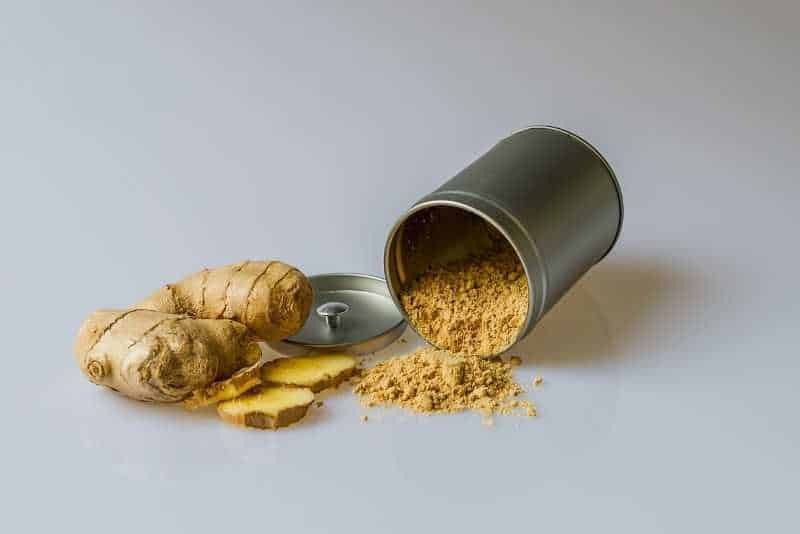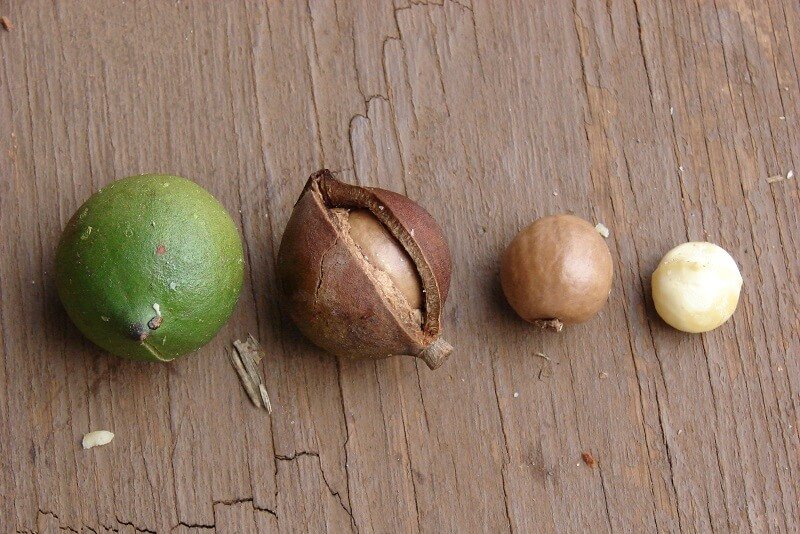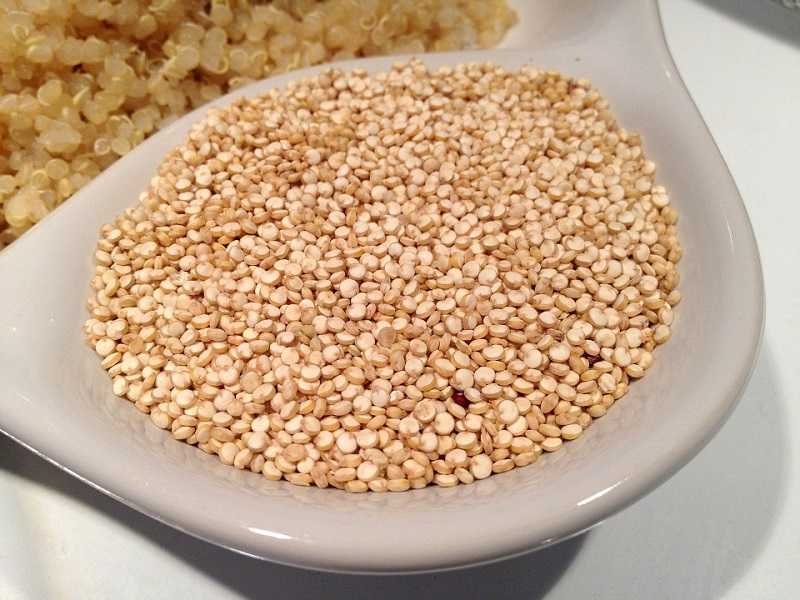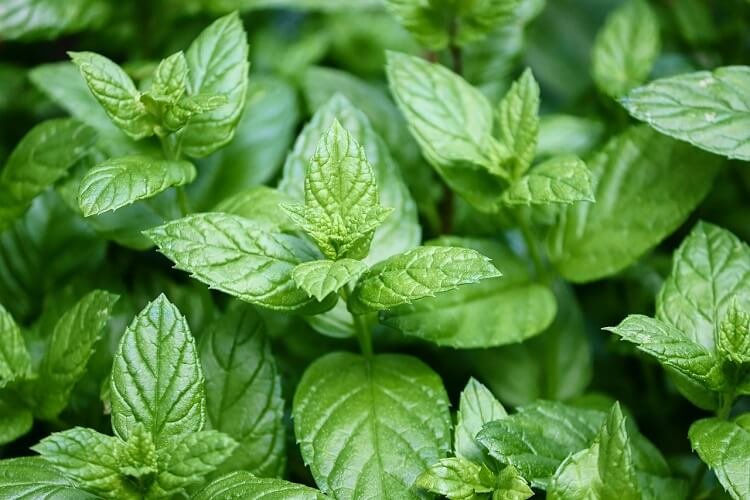14 Best Foods for Premenstrual Syndrome And What To Avoid

Do you suffer from premenstrual syndrome (PMS)? If so, you’re not alone. Many women experience unpleasant symptoms in the days leading up to their period.
Fortunately, there are steps you can take to help relieve your symptoms. One of the most important is making sure you’re eating the right foods.
In this blog post, we’ll discuss the best foods for PMS and how they can help improve your life during menstruation cycles.
What is Premenstrual Syndrome (PMS)?
Premenstrual syndrome (PMS) is a group of symptoms that women experience during the days leading up to their period. PMS can include physical, mental, and emotional symptoms.
Common physical symptoms include bloating, breast tenderness, fatigue, and headaches. Mental and emotional symptoms may include anxiety, depression, irritability, and mood swings.
There is no one-size-fits-all solution to managing PMS symptoms. However, making dietary changes may help some women find relief.
The following foods have been shown to provide benefits for women with PMS:
Best Foods for Premenstrual Syndrome
1. Turmeric
Turmeric is one of the best foods for premenstrual syndrome. It is a yellow spice that has been used for centuries in Indian cuisine. It’s also known for its medicinal properties and has been shown to be effective in treating a variety of health conditions.
Recent studies have shown that turmeric may be helpful in relieving the symptoms of PMS. One study found that women who took a curcumin supplement (a compound found in turmeric) every day had fewer symptoms of PMS, such as mood swings and bloating. [1]
Which nutrients are present in Turmeric Which helps in PMS
Curcuminoids are the main active ingredients in turmeric. They have anti-inflammatory and antioxidant properties, which may help to relieve the symptoms of PMS.
2. Ginger
Ginger is another great foods to fight premenstrual syndrome. Ginger is a popular home remedy for nausea and an upset stomach. It can also be helpful in treating PMS symptoms like bloating, cramps, and headaches.
One study found that taking ginger supplements reduced PMS-related pain by 41% [2]. Another study looked at the effects of Ginger on menstrual pain. The study found that Ginger was just as effective as ibuprofen in reducing pain. [3]

Ginger can be consumed in many different ways. You can drink ginger tea, take ginger supplements, or eat ginger-containing foods like gingerbread cookies or stir-frys.
Which nutrients are present in Ginger Which helps in PMS
Zingibain is the main type of protein found in Ginger. It’s a digestive enzyme that helps break down food. Zingibain has anti-inflammatory properties and can help relieve pain.
3. Black Chocolate
Black Chocolate is a great food to eat if you have PMS. It contains magnesium, which can help relieve cramps.
Plus, it has a delicious chocolatey flavor that many women crave when they’re experiencing PMS symptoms.
Also, Black chocolate contains a high level of antioxidants, which can help reduce inflammation.
In one study published in the Journal of Medicine and Health, women who ate 1.4 ounces (40 grams) of dark chocolate per day for two months experienced a significant reduction in PMS symptoms. [4]
4. Nuts
Nuts are also among the best foods for premenstrual syndrome. All Nuts are a great source of protein, healthy fats, vitamins and minerals.
They can help to stabilize blood sugar levels, which can be helpful in managing PMS symptoms like mood swings and irritability.

Nuts are also a good source of magnesium, which can help to reduce bloating, water retention, and breast tenderness.
Almonds, in particular, are high in magnesium and can also help to boost energy levels. They are a good source of fiber, magnesium, and vitamin E, all of which can help relieve PMS symptoms.
Magnesium can help reduce cramps, while vitamin E can help reduce bloating. Fiber can help keep you feeling full and reduce cravings.
Related: Magnesium Breakthrough Review [2022]: Is This The Best Magnesium Supplement In The Market?
5. Flaxseed Oil
Flaxseed Oil is a great food to eat if you’re struggling with PMS. It’s high in omega-3 fatty acids, which help to regulate hormone levels and reduce inflammation.
Adding flaxseed oil to your diet can help improve symptoms like mood swings, bloating, and cramps. You can add it to smoothies, oatmeal, or salad dressings or take it in capsule form.
These are the “good” fats that have been shown to have various health benefits, including reducing inflammation, lowering cholesterol levels, and improving cognitive function.
Steven Rosenzweig, director of the Center for Integrative Medicine at Thomas Jefferson University Hospital in Philadelphia states that the single most effective supplements are evening primrose oil and flaxseed oil. [5]
6. Goat’s Yogurt
Goat’s yogurt is an excellent food for women suffering from premenstrual syndrome.
It is rich in calcium and vitamin D, which can help reduce the symptoms of PMS.
Additionally, goat’s yogurt contains probiotics that can help regulate the digestive system and ease bloating.
For best results, eat a cup of goat’s yogurt every day during your menstrual cycle.
7. Quinoa
Quinoa is an excellent source of magnesium and a great remedy for premenstrual syndrome.
Quinoa is a whole grain that can help relieve the bloating and water retention associated with PMS.

It’s also high in fiber, which can help regulate your digestive system and ease constipation, another common symptom of PMS.
Quinoa is also a good source of protein, which can help reduce cravings for sugary foods.
8. Kombucha
Kombucha is a fermented tea that has been used for centuries as a traditional remedy for various ailments. Some believe that kombucha can help relieve symptoms of premenstrual syndrome (PMS), including bloating, cramping, and mood swings.
There is some evidence to support these claims. A small study published in the Journal of Alternative and Complementary Medicine found that women who drank kombucha daily for two months reported a significant reduction in PMS symptoms.
Kombucha is a rich source of probiotics, which are beneficial bacteria that support gut health. Probiotics have been shown to help relieve PMS symptoms, as well as other digestive issues like irritable bowel syndrome (IBS).
9. Peppermint tea
Peppermint tea is a great choice for women with PMS. It’s high in magnesium, which can help to relieve muscle cramps and tension headaches.

Peppermint tea also has a calming effect, which can help to ease the stress and anxiety that often accompanies PMS. You can consummate peppermint tea hot or iced.
A randomized, double-blind, placebo-controlled trial was carried out on 50 high school students who were diagnosed with PMS in Babol, Iran concluded that the PMS score was decreased for the two menstrual cycles, up to 50% in peppermint oil group and to just 10% in the placebo group. [6]
10. Black Beans
Black beans are a great source of magnesium, which can help to reduce some of the symptoms of PMS.
Magnesium is a mineral that helps to regulate the body’s hormones, and it can be especially helpful for women who suffer from cramps, bloating, and mood swings.
Black beans are also a good source of fiber, which can help to regulate digestion and minimize constipation.
11. Sardines
If you’re looking for a food that’s packed with nutrients that can help ease PMS symptoms, look no further than sardines.
These little fish are an excellent source of omega-3 fatty acids, which have anti-inflammatory properties.

Omega-3 fatty acids can help reduce bloating, breast tenderness, and other inflammation-related PMS symptoms.
What’s more, they may also help improve your mood by alleviating depression and anxiety.
Related: Best Foods For Depression Based On Research: Top 12 Foods That Help Fight Depression
12. Green leafy vegetables
Green leafy vegetables, such as spinach and kale, are rich in magnesium. This mineral has been shown to help reduce the symptoms of PMS, including bloating, fatigue, and breast tenderness.
Magnesium is also involved in regulating serotonin levels. Serotonin is a neurotransmitter that plays a role in mood and can be deficient in women with PMS.
Related: Natural Anti-Aging: 2 Vegetables For a New Brain Based On Research
13. Eggs
Eggs are a good source of protein and contain many vitamins and minerals that can help relieve PMS symptoms.

Vitamin D in eggs can help reduce inflammation, while vitamin B6 can help alleviate bloating and cramps.
Eggs are also a good source of iron, which can help prevent fatigue.
15. Pumpkin Seeds
Pumpkin seeds are a good source of magnesium, which can help reduce the symptoms of premenstrual syndrome.
Magnesium helps to relax muscles and relieve cramps. It also supports the nervous system and can help reduce anxiety and irritability.
Pumpkin seeds are also a good source of iron, which is important for preventing fatigue. You can eat pumpkin seeds on their own or add them to your favorite trail mix.
Food To Avoid in Premenstrual Syndrome
The following foods are better to be avoided to avoid premenstrual syndrome pains.
1) Red Meat
Red meat is often a go-to food for many people, but it’s not the best option when you’re dealing with premenstrual syndrome.
Red meat is high in saturated fat, which can lead to bloating and other PMS symptoms.
In addition, red meat is also difficult to digest, which can make your symptoms worse.
If you’re looking for protein-rich food that’s easier on your stomach, try fish or chicken instead.
Related: 18 Best Supplements for Gut Health: Improve Digestion, Immunity, and More
2) Alcohol
While a glass of wine may seem like a good idea when you’re dealing with cramps and PMS, alcohol is actually one of the worst things you can drink.
Not only does alcohol contribute to weight gain and bloating, but it can also aggravate your PMS symptoms.
If you’re looking for a refreshing drink that won’t make your symptoms worse, try swapping out your wine for sparkling water or herbal tea instead.
Relate
3) Caffeine
Caffeine is another substance that can make your PMS symptoms worse. Caffeine can cause bloating, headaches, and even anxiety.
If you’re looking for a way to get your energy fixed without exacerbating your symptoms, try switching to decaffeinated coffee or tea instead.
4) Sugar
Sugar is another culprit when it comes to PMS symptoms. Sugar can cause bloating, weight gain, and even mood swings.
If you’re looking for a way to satisfy your sweet tooth without making your symptoms worse, try using a sugar-free substitute like stevia or xylitol instead.
Related: New Study: Sugars are the Real Threat to Heart Health
5) Salt
Salt is another substance that can make your PMS symptoms worse. Salt can cause bloating, water retention, and even cramps.
If you’re looking for a way to reduce your sodium intake, try switching to a low-sodium diet or using a salt substitute like potassium chloride instead.
Final Take
In this article we explored 14 of the best foods for premenstrual syndrome and 5 foods that you should avoid if you want to minimize the pains and discomfort of PMS.
These best foods for PMS must not be consumed only when you have period but throughout your everyday life. These are some of the most healthy foods you can add in your diet.
If you want to learn more about healthy foods that can really change your mood and overall health check the following articles:
40 Real Foods to Eat to Live Longer, Happier & Healthier,
The 6 Best Foods For Brain Health, According to Harvard Nutritionist,
15 Best Foods for Viral Infections: Boost Immunity and Fight Off Illness and
21 Best Foods That Boost The Immune System.
The Lost Book of Herbal Remedies
You’ll find 800+ beneficial plants and remedies in “The Lost Book of Herbal Remedies“.
It includes recipes of tinctures, teas, decoctions, essential oils, syrups, salves, poultices, infusions and many other natural remedies that our grandparents used for centuries.
What’s also special about this book is that it has between 2 and 4 high definition, color pictures for each plant and detailed identification guidelines to make sure you’ve got the right plant.

